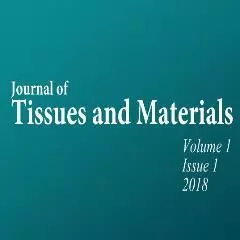Saeid Orangi
Assist scientists, engineers or technologists in processing or characterizing
materials according to physical and chemical properties.
Assist scientists, engineers, or technologists in writing process specifications or
documentation.
Calibrate nanotechnology equipment, such as weighing, testing, or production
equipment.
Measure or report toxicity of engineered nanoparticles.
Test nano-enabled products to determine amount of shedding or loss of
nanoparticles.
Track inventory and order new supplies, as needed.
Compile information and prepare reports.
Set up and execute experiments according to detailed instructions.
Record test results in logs, laboratory notebooks, or spreadsheet software.
Produce detailed images or measurement of objects, using tools such as scanning
tunneling microscopes or oscilloscopes.
Measure or mix chemicals or compounds in accordance with detailed instructions
or formulas.
Design and develop medical diagnostic and clinical instrumentation, equipment,
and procedures, using the principles of engineering and biobehavioral sciences.
Conduct research, along with life scientists, chemists, and medical scientists, on
the engineering aspects of the biological systems of humans and animals.
Advise and assist in the application of instrumentation in clinical environments.
Analyze new medical procedures to forecast likely outcomes.
Teach biomedical engineering or disseminate knowledge about field through
writing or consulting.
Diagnose and interpret bioelectric data, using signal processing techniques.
Manage team of engineers by creating schedules, tracking inventory, creating and
using budgets, and overseeing contract obligations and deadlines.
Conduct research or assist in the conduct of research, including the collection of
information and samples, such as blood, water, soil, plants and animals.
Analyze experimental data and interpret results to write reports and summaries of
findings.
Set up, adjust, calibrate, clean, maintain, and troubleshoot laboratory and field
equipment.
Participate in the research, development, or manufacturing of medicinal and
pharmaceutical preparations.
Develop new methods to study the mechanisms of biological processes.
Manage laboratory teams, and monitor the quality of a team's work.
Share research findings by writing scientific articles and by making presentations
at scientific conferences.
Develop and test new drugs and medications intended for commercial
distribution.
Prepare pharmaceutical compounds for commercial distribution.
Research the chemical effects of substances such as drugs, serums, hormones, and
food on tissues and vital processes.
Design and build laboratory equipment needed for special research projects.
Communicate research results through conference presentations, scientific
publications, or project reports.
Recommend new systems and processes to improve operations.
Supervise biological technicians and technologists and other scientists.
Prepare requests for proposals or statements of work.
Analyze organic or inorganic compounds to determine chemical or physical
properties, composition, structure, relationships, or reactions, using
chromatography, spectroscopy, or spectrophotometry techniques.
Operate nanotechnology compounding, testing, processing, or production
equipment in accordance with appropriate standard operating procedures, good
manufacturing practices, hazardous material restrictions, or health and safety
requirements.
Conduct research related to a range of nanotechnology topics, such as packaging,
heat transfer, fluorescence detection, nanoparticle dispersion, hybrid systems,
liquid systems, nanocomposites, nanofabrication, optoelectronics, or
nanolithography.
Create designs or prototypes for nanosystem applications, such as biomedical
delivery systems or atomic force microscopes.
Provide scientific or technical guidance or expertise to scientists, engineers,
technologists, technicians, or others, using knowledge of chemical, analytical, or
biological processes as applied to micro and nanoscale systems.
Prepare nanotechnology-related invention disclosures or patent applications.
Identify new applications for existing nanotechnologies.
SKILLS
Microsoft software
Image j(image analysis program extensively
used in the biological sciences and
engineering)
Team management
Origin pro
Graphical abstract
Ideator,inventor,designer
Patent rules(claim,....)
Inventory planning
AWARD&HONOR
Ranked 3th in Natinal Elite Competition(Sharif) rahneshan
Ranked 4th in Natinal Elite Competition(Sharif) rahino
Ranked 12th in Nation entrance exam among 3000 Master candidate students(Nanotechnology
engineering)
Owner & Designer & Innovator of patent of intelligent locker for dooor of automobil
internantional festival of ideas and innovation (1idea-1world)
Ranked 19th of national nanotechnology olympiad,the most important nanotechnology
competition among 5000 people(experts,phd,master,bachelor students
.....
CERTIFICATION
Atomic force microscopic(afm)
Scanning Electron Microscopic(SEM)
Xpert high score(xrd)
Drug delivery
NMR
UV
No items yet!
-
Member
24-Jan-18
No items yet!
